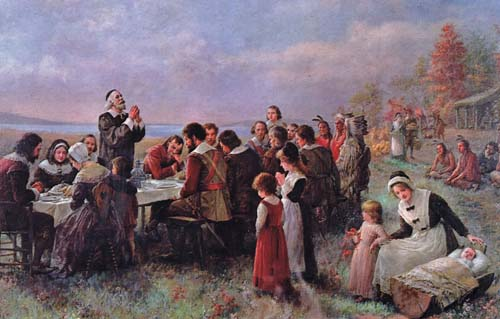
Earlier today I finished reading Johann Wolfgang von Goethe's famous book, Die Leiden des jungen Werther (The Sorrows of Young Werther). The book, first published in 1774, tells the story of a young man, Werther, who falls deeply in love with a young woman, Charlotte. Charlotte, however, marries another man, Albert, and the sorrows of Werther are told through letters he writes to his friend, Wilhelm. The ending of the book is no surprise, for we learn right off the bat that Werther commits suicide because of his impossibly deep love for Charlotte.
So why do I want to talk about this book today? Well, I found a very interesting link between Werther and his religiousness. At the beginning of the book, Werther's outlook on life is rosy and sweet, and although he compares nature and heaven to each other, that's about as far as he goes with religion. Later on in the novel, however, Werther's christian upbringing begins to play a larger role as he nears his death. He's more concerned with going to heaven, and even talks about how his suicide will not prevent his going to heaven because it was more like a sacrifice (he had to kill himself so that he wouldn't sin and try to take Charlotte away from Albert). He even goes as far to say that his suicide is more like a murder, for Charlotte sends him the pistol with which he shoots himself. Nevertheless, Werther's suicide is viewed as a sin and no priest was present at his burial.
Anyway, I just found it interesting that Werther (a non-religious character) turned toward religion in the last few months of his life. It makes sense, though, for when one nears their own death, one inevitably thinks about the afterlife. I think this is a common theme among other written works, and even in everyday life. Goethe did an excellent job in making Werther a realistic character, and even though this book is by no means a religious one, its main character fits with the religious times.
It reminds me of a quote by Carl Jung (a Swiss psychiatrist), who said: "Among all my patients in the second half of life ... there has not been one whose problem in the last resort was not that of finding a religious outlook on life." Like Werther, people turn to religion (or a type of outlook on life) when they near death...it's inevitable, I think, because we humans need that type of security.
Here's some more information about Carl Jung and The Sorrows of Young Werther:
And here's a link to an English translation of Die Leiden des jungen Werther:





 In class on Monday, we talked about the validity that Native American history has on its claim of how and why the mounds were built (especially the effigy mounds created in the Late Woodland Period). The conclusion we reached matched with the book, saying that although the stories and histories of the mound builders may have been passed down to current Native Americans, we can't take their stories as factual evidence. There are too many variables that can cloud the true reasons behind the formation of the mounds, and (as in the case with the Ho-Chunk tribe), their histories might have been influenced by researchers offering hypotheses about what the mounds stood for.
In class on Monday, we talked about the validity that Native American history has on its claim of how and why the mounds were built (especially the effigy mounds created in the Late Woodland Period). The conclusion we reached matched with the book, saying that although the stories and histories of the mound builders may have been passed down to current Native Americans, we can't take their stories as factual evidence. There are too many variables that can cloud the true reasons behind the formation of the mounds, and (as in the case with the Ho-Chunk tribe), their histories might have been influenced by researchers offering hypotheses about what the mounds stood for.
